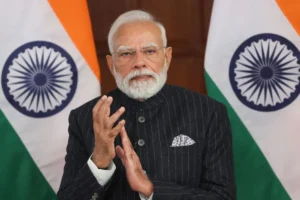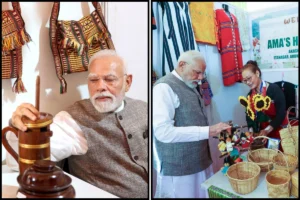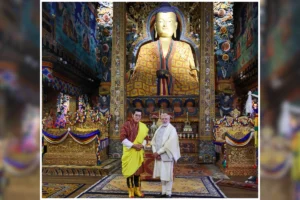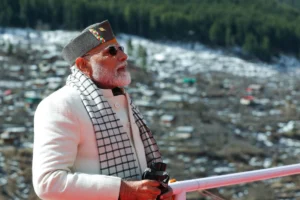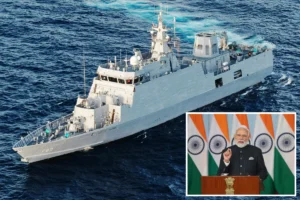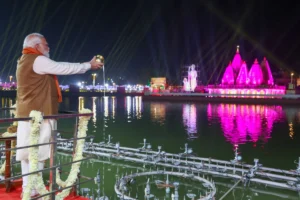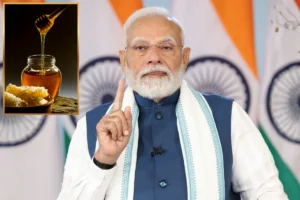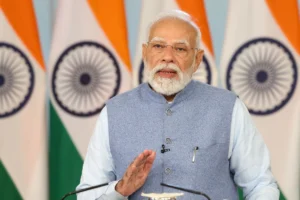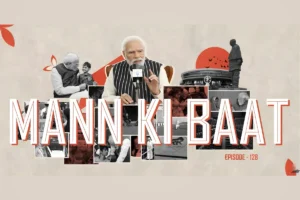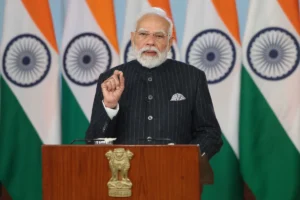
Brunei a small Islamic country in Southeast Asia. This country with an area of about six thousand square kilometres, is one of the ten richest countries in the world. This country also has one of the best living standards in the world. Its people are living a very peaceful life economically, they don’t have to pay any kind of taxes. And facilities like education and health are completely free. But the real reason for the fame of this country is something else. Actually, Brunei is one of the countries where even today the monarchy rules. The King is responsible for all the affairs of the country, and the people do not have the right to choose their leader. Brunei is one of the richest countries in the world today, but this country was not always like that. What happened in the twentieth century that changed the fate of this country? What is the secret of this country’s economic development? How much wealth does the king of the richest country have? What are the royal family’s secrets behind the free privileges given to the people here? And most importantly, what is the significance of PM Modi’s visit to this country?
The official name of this county is Brunei Darussalam. It is located on the island of Borneo on the South-Eastern side of the continent of Asia. All the rest of this island is part of Indonesia and Malaysia. Brunei got independence from Britain on January 1, 1984. After Singapore, Brunei is second on the list of human living standards in South East Asia. According to international financial reports, Brunei’s per capita purchasing power ranks fifth in the world.
History and System of the Kingdom of Brunei
Brunei has been a monarchy for many centuries. From the 15th century to the 17th century, the Kingdom of Brunei was at its peak, extending from northern Borneo to the southern Philippines. In the 19th century, this empire began to weaken. Britain had been interfering in many of Brunei’s affairs until now. In 1888, Brunei came under British control. After that in 1984, Brunei became an independent country and the then King Hassanal Bolkiah assumed the post of Prime Minister. Sultan Hassanal Bolkiah has been on the throne of Brunei for the past 56 years. He became the 19th King of Brunei in 1967 at the age of 21. Brunei still has a dictatorial monarchy. There is a Parliament but there are no elections. We have seen in the recent times, even if the position of Queen or King still exists in a country, this position is only symbolic, while the country is ruled by the Prime Minister or the President who is elected. But that is not the case in Brunei at all. In Brunei, all affairs of the country are handled by the King. On the contrary, Sultan Hassanal Bolkiah has many powers. The Sultan also serves as Prime Minister, Defence Minister, Finance Minister, and Minister of Foreign Affairs and Trade of Brunei. Usually, When the Prime Minister takes a decision, he needs the opinion of his ministers but Hassanal Bolkiah, since he has control over most of the ministries himself, Therefore he is independent in all decisions. Legally, Hassanal Bolkiah also has many powers, and can take any decisions he wants. He has made many changes in the constitution of Brunei in 2006. He also holds honorary commissions in the British Royal Navy and Air Force.
Wealth of the King of Brunei
King Hassanal Bolkiah is one of the richest people in the world, his net worth is around 30 billion USD according to the latest reports. His royal palace in Brunei is the largest residential palace in the world. It has been built on an area of 200,000/ square meters. This magnificent palace has a total of 1788 beautiful rooms, 257 best-designed bathrooms, a large hall with a seating capacity of 5000 people, a parking space for thousands of cars, five swimming pools and a beautiful mosque, which has a capacity of 1500 people. Apart from this magnificent palace, there are many other palaces of the King. King Hassanal Bolkiah has thousands of luxury cars. He has a Rolls Royce made of gold. He also has many Ferraris, Bentleys, Bugattis and McLarens. He has finest private jets too. These jets have layers of gold on them. King pays 20,000 USD for his haircut only, that is 16,79,400 in Indian rupees!
The Secret of Brunei’s economy
In the early twentieth century, Brunei’s integrity faced many threats, Brunei became a British protectorate in 1888, and in 1906 administration was vested in a British resident, whose advice the sultan was bound to accept. The economy was also in bad condition. The currency had become worthless. But then in 1929, Oil and Natural Gas reserves discovered here, that changed its fate forever. Different international oil companies began operation here, Brunei’s economy grew with oil and gas exports. But then the Second World War began. Japan gained control of Brunei and some nearby countries with the help of 10,000 soldiers. In four years, Japan destroyed Brunei’s economy. Japanese language was taught in schools, government officials were forced to learn Japanese. Instead of Brunei’s currency, they introduced their own currency here. Trade was completely stopped. Finally, in 1945, the Bruneian army together with Australia attacked Japanese troops. Thirty thousand Australians took parts in landings at Brunei Bay on 10 and 16 June 1945. Japan was weakened after the US nuclear attacks, So Japan surrendered in Brunei. Brunei’s development journey began again. Economic development in Brunei was at its peak in the 1970s. Oil and Natural Gas reserves were being used up so fast that experts warned the authorities that these reserves might run out. Today, Brunei produces 1,80,000 barrels of oil per day. It is the third largest oil producing country in Southeast Asia. There is a shell petroleum company in Brunei, Called Brunei Shell Petroleum BSP. This company has an important role in the development of Brunei. A Southeast Asian nation with a population of less than half a million, Brunei relies heavily on its oil and gas sector, which accounts for 90% of government revenue and over half of the GDP, making it one of the world’s wealthiest countries. Per Capita GDP of Brunei in the year 2023 was about 34,222 USD. This is why the quality of life in Brunei is very good. All citizens have basic necessities of life, good house and car etc. The government provides citizens with free plots, cheap houses and cheap cars. Food prices are also very low. Education and medical facilities are also free for citizens. Books, hostels and transport is free too. If a citizen needs to go abroad for education or treatment, the cost is also borne by the government. Due to threat of oil reserves being exhausted, the government of Brunei has made agriculture, forestry, and fish production a source of national income. It is feared that Brunei’s oil and gas reserves will be exhausted by 2035.
Objections to the Royal Family of Brunei
Brunei Royals has to face criticism of the international media because of its expenses. Objections are raised against King Hassanal Bolkiah that he has established dictatorial monarchy in the country. No one can challenge the decisions of the King. People have no rights. There is no Freedom of Speech in Brunei. By giving a little economic relief to the people, he and his family are free from any restrictions. This is the reason why there is a huge difference between the lifestyle of the public and king’s family despite the huge national income. According to international media, a major part of the country’s income share is held by the king and his family. Hassanal Bolkiah has five sons and seven daughters. One of them, Prince Abdul Mateen is a popular celebrity with 2.5 million followers one Instagram. He spends vacations in the most expensive places, and travels in the luxury jets. He is 32 years old and people envy his lavish lifestyle. King’s brother, Prince Jafri Bolkiah is accused of stealing 15 billion USD. Prince Jafri owns more than 600 luxury properties, 2000 luxury cars, and 9 jets. Similarly, the Bolkiah family also owns many companies of which there is no record for public. Few facilities are given to the public to gain their support. But in return, the royal family lives a life with no restrictions. Despite this, the King and his family are very popular among the people, they are well-liked.
Other interesting information
Just like the list of expenses of Sultan Hassanal Bolkiah, his name is also very long. His full name in Arabic is Sultan Haj Hassanal Bolkiah Mu’izzaddin Waddaulah ibni Al-Marhum Sultan Haj Omar Ali Saifuddien Sa’adul Khairi Waddien. He is 78 years old. Fifty one percent of school-going children here are obese. Education is free, so literacy rate is 98 percent. Life is lived according to Islamic Laws, alcohol is prohibited. Brunei is also known as the Venice of Asia, because the cities are situated along the river banks. People use boats to move from one place to another. Tourist flocks to see this small but economically independent country.
Relations between India and Brunei Darussalam
Diplomatic relations between India and Brunei Darussalam were established on 10 May 1984. Indian Mission in Brunei Darussalam was established on 18 May 1984. Brunei Darussalam’s resident High Commission was established in India on 12 August 1992. Brunei Darussalam and India share close relations based on their strong traditional & cultural linkages and common membership of UN, NAM, Commonwealth, ASEAN etc. Brunei Darussalam Government has been supportive of India’s ‘Look East Policy’ and ‘Act East Policy’ for expansion and deepening of cooperation with ASEAN. Brunei Darussalam, as Country Coordinator for India in ASEAN from July 2012 till June 2015, played an important role in bringing India closer to ASEAN. Brunei Darussalam has been generally supportive of India and its candidature for elections to various international organisations.
The first visit by an Indian Prime Minister to Brunei was made by Manmohan Singh in 2012. He visited to Brunei to participate in the ASEAN -India Commemorative Summit, marking the first official visit by an Indian Prime Minister to the Southeast Asian nation.
Prime Minister Narendra Modi’s visit to Brunei will carry significant economic and strategic implications.
Economic Boost
Trade Relations; Diversification – Brunei rich in oil and gas, could offer India opportunities to diversify its energy sources.
Investment Opportunities; Indian companies could explore opportunities in sectors like infrastructure, Pharmaceuticals, information technology and renewable energy in Brunei, contributing to bilateral trade and investment growth.
Enhancing Connectivity; Aviation and shipping- Improved air and maritime connectivity between India and Brunei could facilitate trade, tourism and people-to-people ties, leading to enhanced economic interactions.
ASEAN Integration; As Brunei is an ASEAN member, strengthening ties with Brunei could help India in deepening its engagement with the ASEAN region. Particularly in the context of the Act East Policy.
Strategic Relations and Partnership
Maritime Security – Brunei being a claimant in the South China Sea dispute, shares concerns with India over freedom of navigation and overflight. Modi’s visit could reinforce cooperation on maritime security, ensuring a rules-based order in the region.
Naval Cooperation; Enhanced naval cooperation, joint exercises and capacity building could be key areas of collaboration, contributing to regional stability.
Defence Cooperation: Defence Training and Exchanges- India and Brunei could enhance military-to-military cooperation through training programs, Joint exercises and exchanges, blistering strategic ties.
Counterterrorism: Cooperation in counterterrorism, intelligence sharing and combating transnational crimes could be crucial areas of partnership.
Cultural and People-to People Ties: Diaspora Engagement- The Indian diaspora in Brunei though small., plays a significant role in the country’s economy. Strengthening ties with the diaspora could further cultural exchange and goodwill between the two nations.
Educational and Skill Development: Enhanced Cooperation in education and skill development could open new avenues for Indian Professionals and students in Brunei.
Regional and Global Cooperation
India-Pacific Strategy; Collaborative Approach- Brunei’s strategic location in the Indo-pacific region aligns with India’s vision of a free, open and inclusive Indo-Pacific. Cooperation in this area could be a key focus during Modi’ visit.
Multilateral Engagements; Brunei’s support in multilateral forums like ASEAN, East Asia Summit (EAS) and others could be vital for India’s regional strategies.
Energy Securities: LNG Supplies, Brunei’s liquified natural gas (LNG) exports could play a crucial role in India’s energy security strategy. Strengthening ties could ensure long-term energy supply agreements.
Overall, a visit by PM Modi to Brunei would likely to aimed at reinforcing India’s Act East Policy, enhancing economic ties and deepening strategic partnerships in Southeast Asia, particularly within the broader Indo- Pacific framework.
To read more such news, download Bharat Express news apps









